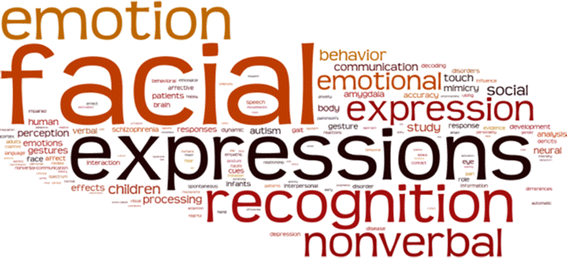 We spend a great deal of time talking about Humintell’s work on nonverbal behavior, but it’s important to know that this is a wide and exciting field!
We spend a great deal of time talking about Humintell’s work on nonverbal behavior, but it’s important to know that this is a wide and exciting field!
In a recent paper in the Journal of Nonverbal Behavior, a pair of researchers sought to map out the major authors and major papers that have dominated the field. Instead of just looking at new developments, this was an important way of seeing what the lay of the land in the field is, so to speak, and this sort of work is incredibly valuable to those trying to expand the field and to those trying to understand the academic consensus.
One of the exciting features of this research was also an analysis of the most frequently cited and published scholars in the field. We were proud to see Humintell’s Dr. David Matsumoto listed in the top five scholars!
In mapping the discipline, Drs. Pierrich Plusquellec and Vincent Denault leveraged a massive bibliographic database that included more than 200 million articles from thousands of journals, not limited to psychology. However, they subset this database to a series of important keywords that were relevant to nonverbal behavior and folded in citation counts to each article to determine its importance.
The first intriguing finding was a calculation of the most common words used in the titles of relevant articles. This tells us what most scholars tend to focus on and included “emotion,” “facial,” “expressions,” and “recognition.” However, these were often paired with applications including “children,” “psychiatric illness,” and “depression.”
Second, the study authors also tracked the frequency of highly cited articles over time. By looking only at the thousand most cited articles, they were able to track the development of seminal works and the emergence of increased interest in the field. They found that the field emerged during the 1960s but that most of these articles were actually quite recent.
This last finding indicates that, while the field has been developing for over 50 years, it has gained newfound emphasis and popularity recently.
These over-time findings were further explored by looking at how frequently used words over time, i.e. which words were most frequent during given decades. “Facial expression” tends to be one of the most frequent across the whole time period, though this was not so pronounced until the 1990s and 2000s.
So what exactly does this tell any of us about the field?
A main takeaway seem to be the primacy of studying facial expressions within nonverbal behavioral studies, which is notably different from looking at body language or even microexpressions more narrowly.
Another important conclusion is also the exciting nature of the current period of this field. It appears that the last 15 years have experience a sharp increase in interest, academic and otherwise, in nonverbal behavior, and we are optimistic that this trend continues!
 We keep talking about nonverbal behavior with strangers, but what role does it have in close interpersonal contexts?
We keep talking about nonverbal behavior with strangers, but what role does it have in close interpersonal contexts?